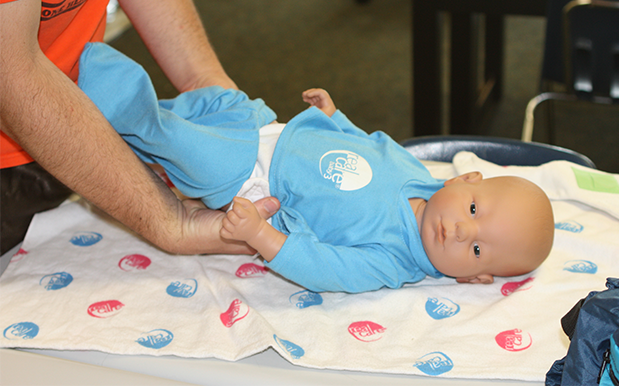
Oh man – remember getting the choice in school to take the sex education class that included having to look after those weird as hell robot babies?
The whole point of them was basically to make you realise the full weight of the decision to have a child.
It pooped, it needed feeding, it screamed constantly, and if you accidentally let its head fall back to damage its tiny mechanical neck, it screamed and died and you failed the assignment. How fucked up is that?
(But everyone totally knows that urban legend about that one friend of a friend who accidentally left theirs on their car roof as they sped off in their P-plate Hyundai, and it somehow didn’t register as a fail because those babies were all old and broken.)
Regardless, MURDERING YOUR ROBOT CHILD GETS YOU AN ‘F’, PEOPLE.
So essentially, the subject that involved those terrifying robots, actually called the Virtual Infant Parenting (VIP) Program, was designed to lower teen pregnancy. But apparently, according to new data, it actually did the opposite.
A new study of three thousand women shows that those who completed the program with the robotic infants were 1.6 times more likely to fall pregnant.
The study was controlled for biases such as whether the girls had already been sexually active, and whether their family was rich or poor, and it was also randomised to remove selection bias.
Dr Sally Brinkman, who is an Associate Professor at the University of Adelaide and one of the authors of the report, said,
“Even when we control for [these things], there’s an increased risk of 1.6 times more likely to have pregnancy if you participate in program than if not.”
The study involved around 3000 women between the ages of 13 and 15 from Western Australia – researchers were given access to their medical records until the age of 20, to see how many fell pregnant, and also how many chose to have an abortion.
They found 17% of those who took part in the VIP program had fallen pregnant by then, compared to 11% of those who didn’t do the program.
Brinkman says that the study’s results “were unfortunately not what we were hoping for”.
“The aim of the program was to prevent teenage pregnancy, we can definitely say that it didn’t do that.”
The professor couldn’t speculate why, but did say that anecdotally, many of the women enjoyed the program and received a lot of attention while caring for the baby.
Brinkman has now recommended that schools stop using the Virtual Infant Parenting program.



Source: ABC.
Photo: CTFM.



